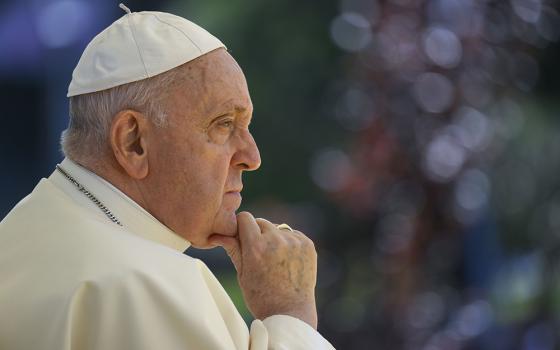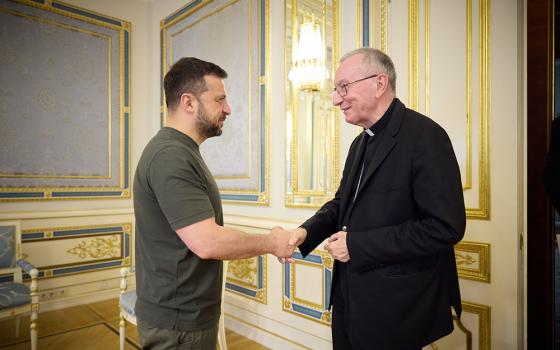I attended Congressman Paul Ryan’s lecture at Georgetown this morning. One of the words you often hear about Ryan is that he is very bright, and he was certainly quick on his feet during the Q & A. He mentioned that his copy of the Compendium of Catholic Social Teaching is well dog-eared. But, while he may be bright, there was nothing in his speech that suggested much in the way of depth.
Several times, Ryan stated that the rationale for his economic proposals was the “shadow of debt” that hangs over the country. I worry about the debt also. But, Ryan’s ideological narrative, his commitment to libertarian economic ideas, trumps not only his prescriptions for the future but his assessment of the facts. At one point he said, “instead of learning from Europe’s mistakes, we’re repeating them.” It is true that almost all countries are facing larger than anticipated public debt challenges, but it is also true that this seems mostly to be a result of the economic downturn that began in 2008 and that had less to do with the size of the social safety net and more to do with the recklessness of Wall Street investors, and the myriad ways that recklessness dribbled down through the entire financial services industry.
At another point, Ryan said of the President’s economic policies, “They created tremendous uncertainty for businesses and families, as job losses continued to mount.” It is true that the decision to implement the Affordable Care Act over several years was a short-sided attempt to make it look like less of a burden on the nation’s finances, and that there has been a resulting amount of uncertainty. But, it is emphatically not true that “job losses continued to mount.” Job losses were in the hundreds of thousands on the day President Obama was sworn in and, within weeks, not months, the number of job losses began to shrink and, for more than two years now, we have seen positive job growth, slow growth to be sure, but better than the hand Obama was dealt.
Ryan’s speech was also badly suited for a university lecture. He delivered a line evidently taken from his stump speech – “Nobody ever got rich betting against the United States of America, and I'm not about to start” – and he paused, as if expecting applause, but the sentence seemed out of place in a university lecture and it was met with silence.
Ryan did not spend a great deal of his lecture on matters of Catholic social teaching. Early in his speech, after telling the old joke about Catholics thinking they are the only ones in heaven, he said, “I suppose there are some Catholics who for a long time have thought they had a monopoly of sorts... not exactly on heaven, but on the social teaching of our Church. Of course there can be differences among faithful Catholics on this.” Well, yes, there can be differences but we Catholics who have been most active in articulating and defending the Church’s social teachings over the years are not the ones who have ever argued certain Church teachings are “non-negotiable” while others are negotiable. And, it is surely the case that the Church’s consistent teaching, from its highest magisterial authorities, the Council Father at Vatican II and Popes dating back to Leo XIII, to say nothing of earlier theologians and papal statements, all point to certain key components about Catholic values that are not consistent with the hyper-individualism and the hostility to government Ryan champions. All Catholic teachings about the rights of individuals have always been balanced by the awareness that those rights manifest themselves within a commonwealth, within a community of shared values, in which the common good makes claims upon every individual.
After being called out by many, including myself, for highlighting subsidiarity and failing to mention solidarity, Ryan spoke at some length about how the two must go together. It was here that I thought to myself – “bright but not deep.” Solidarity is not just a word, and its theological significance is deeper than Ryan’s invocation of it as a sort of bumper sticker would suggest. It certainly does not seem that he grasps that our Catholic commitment to solidarity among human beings is grounded, ultimately, in the solidarity Jesus Christ demonstrated with humanity on the Cross. If so, he might be a little bit less concerned about following the arbitrary “laws of the market” and a little more concerned about how his policy suggestions might actually affect the poor. As Father Thomas Reese, S.J., said to me after the speech, “Of course, there is room for prudential judgment about addressing the budget deficit but we still have to be concerned with the impact on the poor.”
So, overall, I was underwhelmed by the speech to say the least. And, it seemed the Georgetown student body was underwhelmed by the speaker – there were many empty seats on the main floor and the large balcony of Gaston Hall was completely empty. “Where Obama comes, we have to have a lottery for the seats,” Fr. Reese said. But, I also want to say this. Until last week, Ryan had not mentioned solidarity. Today he did. He may be moving in the right direction, which would be a thing to applaud, or he may be invoking the word without grasping its meaning and significance in an effort to give himself theological cover. Who knows? But, either way, he has opened an avenue, hopefully in his own thinking too, to which we can hold him accountable in public discourse. Let us not rush to extinguish the flickering wick of his conscience. But, he has a lot of reading to do.




